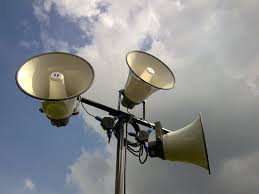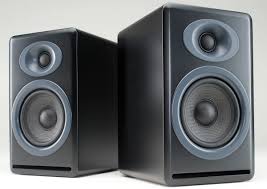 The noise dictatorship in Emena (Kumasi) is alive, well, vibrating, loud, very loud, Roaring and in control of what we hear for seven hours or more each and every day.
The noise dictatorship in Emena (Kumasi) is alive, well, vibrating, loud, very loud, Roaring and in control of what we hear for seven hours or more each and every day.
Recently there was roaring talk about blood pressure, yet it is documented that noise can cause health issues with the blood and heart. Interesting isn’t it that when I gave information to the Noise Dictator about the harmful effects of noise on the human circulatory system and heart he threw it to the ground?
There is a new arrival; a “holy” man dressed in white robes and prancing and preaching back and forth in blasting and blistering tirades of sweat and religious frenzy that would convince even the most godliest angel to turn to satan for relief.
The “holy” man and his astonishing antics and outsized speakers operates in less than a stone’s throw from the noise dictator’ s high masted speakers.
If it wasn’t so sad and if it wasn’t so dangerous to human health one would have to giggle and laugh as both of the noise polluters belched, burped and vomited their messages into the ears and minds of Emena . I saw a tiny child holding an even smaller baby only feet from the obnoxious “Holy” man’s health destroying roaring speakers. What sort of insanity is this? What is happening to the people of Ghana and why? Can anyone tell me?
I have taken the following few excerpts from Medscape.com which among other noise dangers speaks about the health impacts of noise on children.
Medscape declares:
“The WHO (World Health Organisation) has documented seven categories of adverse health effects of noise pollution on humans. Much of the following comes from the WHO Guideline on Community Noise………..
Children are at risk as well. Children who live in noisy environments have been shown to have elevated blood pressures and elevated levels of stress-induced hormones.
The effects of noise pollution on cognitive task performance have been well-studied. Noise pollution impairs task performance at school and at work, increases errors, and decreases motivation. Reading attention, problem solving, and memory are most strongly affected by noise. Two types of memory deficits have been identified under experimental conditions: recall of subject content and recall of incidental details. Both are adversely influenced by noise. Deficits in performance can lead to errors and accidents, both of which have health and economic consequences.
Cognitive and language development and reading achievement are diminished in noisy homes, even though the children’s schools may be no noisier than average. Cognitive development is impaired when homes or schools are near sources of noise such as highways and airports. Noise affects learning, reading, problem solving, motivation, school performance, and social and emotional development. These findings suggest that more attention needs to be paid to the effects of noise on the ability of children to learn and on the nature of the learning environment, both in school and at home. Moreover, there is concern that high and continuous environmental noise may contribute to feelings of helplessness in children.
Noise produces negative after-effects on performance, particularly in children. It appears that the longer the exposure, the greater the effect. Children from noisy areas have been found to have heightened sympathetic arousal indicated by increased levels of stress-related hormones and elevated resting blood pressure. These changes were larger in children with lower academic achievement. As a whole, these findings suggest that schools and daycare centers should be located in areas that are as noise-free as possible.
Children, the elderly, and those with underlying depression may be particularly vulnerable to these effects because they may lack adequate coping mechanisms. Children in noisy environments find the noise annoying and report a diminished quality of life”.
.



